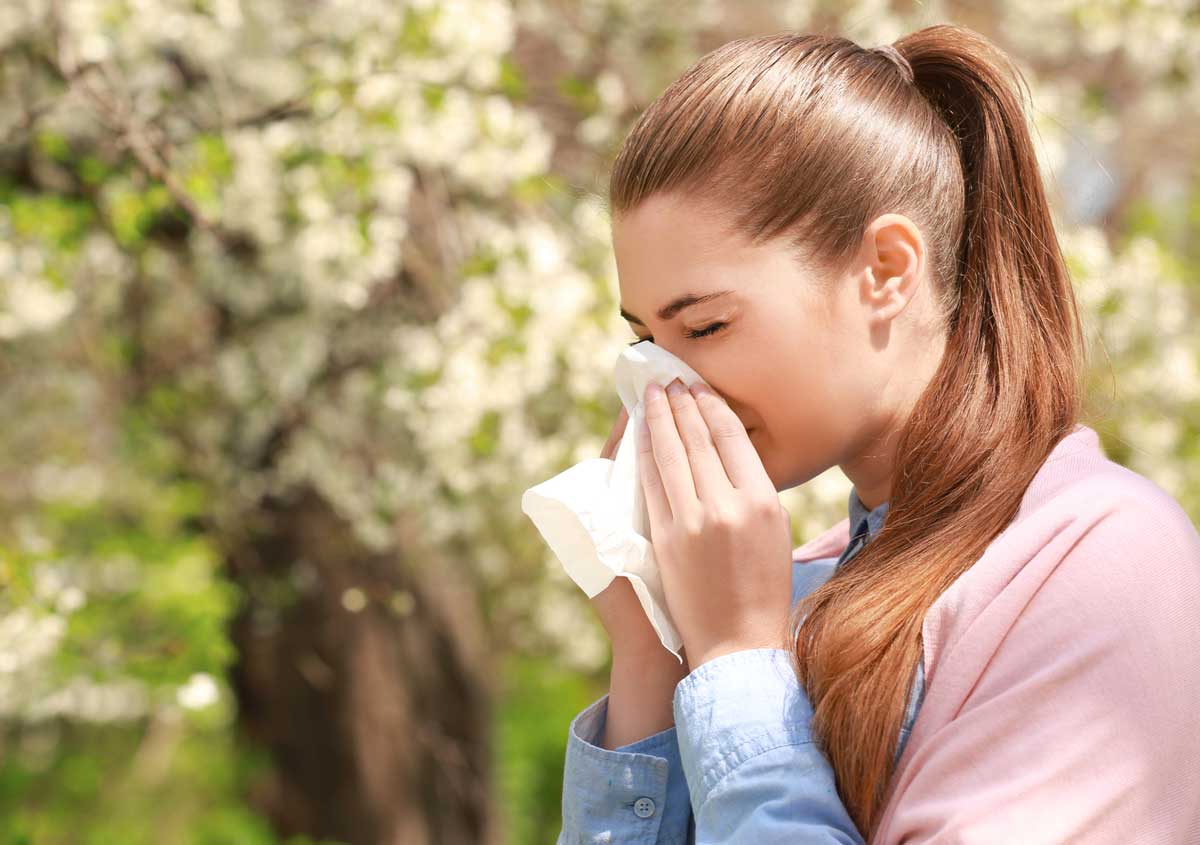
If you or a member of your family live with allergies, it can be more than a bit annoying. Today’s environment is littered with toxins and chemicals and has caused a sharp increase in allergic reactions and long-term problems. Symptoms vary, but many generally sufferers experience a runny nose, itchy eyes, low blood pressure, and in the case of asthma, symptoms can be life-threatening. So how can you deal with them?

Medication
For people with hayfever, the summer season can create months of misery. High pollen counts send many to the pharmacy to stock up on medicine. Antihistamines are good for minor allergies as they reduce the amount of histamine the body produces, which triggers the inflammatory response. You can buy them over the counter, or a doctor can prescribe a stronger dose depending on severity. There are many forms you can use, such as eye drops, sprays, and pills. You may need to experiment to find the right one for you.
If you are prone to swelling, you can use anti-inflammatory medication such as ibuprofen or corticosteroid cream.
Environment
Maintaining a toxin-free environment is challenging, but you can do things to ensure the air is pure and fresh. Asthma triggers include dust mites, mold, and pollen and can be very problematic. Humidity is also a factor, so if you live in a place where you can’t have your windows open due to allergens, you should consider installing an air conditioning unit with heating options for purification purposes and the best air flow and temperature control. You can learn more about choosing the right heat type for your PTAC here. In addition, limiting the humidity in the air will help reduce inflammation in people living with asthma aiding sleep and making breathing easier.
There are things you should avoid if you’re prone to allergies. Smoking and open fires could trigger an allergic response, so always smoke outside and don’t light the fire. Stay on top of cleaning chores to rid your home of dust and mildew; use natural cleaning products in case chemicals affect you. Use allergy-resistant bed coverings and pillows and avoid feather-filled soft furnishings. Deal with mold swiftly. Mold spores are dangerous to the health and especially to allergy sufferers.
Pets and insects
If you own a pet, they are likely a valued member of the family; however, you should be careful when handling them as pet fur is a common trigger and can cause severe symptoms. You should be careful of dander, saliva, and waste products and handle them with care; better still, get someone in the family who is not allergic to deal with the daily care of your animals. If you do need to handle them, always wash your hands thoroughly afterwards. Try not to get your mouth too near; as hard as it is, you should probably not embrace or hug your pets.
Insects such as cockroaches can be triggers in some people. Always clean up any food and don’t leave open food packets around. Cockroaches carry diseases and breed fast, so if you discover evidence of a cockroach infestation, deal with it immediately. Call in pest control who are specialists in ridding homes of these nasty critters. It would be wise to stay away for a few days if you can, especially if your allergy is severe.
Wasps are particularly common in the summer and can be a nuisance. If you’re allergic to wasps, you’ll be aware of the danger of anaphylactic shock. If the allergy is severe, you should contact your doctor, who will provide you with a treatment kit you can use immediately if you get a wasp sting. If the allergy is minor, a good quality antihistamine cream should calm symptoms.
Living with allergies is a nuisance, but you can limit the effects with the treatments and care.
